16th of July, 2018
Click here for the previous day’s post.
So, continuing with my Beach Writing Challenge, after a healthy writing sprint of 4 continuous days and crossing the 23,000 word mark, I took a break on this day. Just chilled out, walked around the Mapusa market a bit, ate, and did nothing. Let’s count this one as my holiday then!
Statistics so far:
Day 1 total – 6500 words
Day 2 total – 13000 words
Day 3 total – 20000 words
Day 4 total – 23000 words
17th of July, 2018
This was my 5th day of writing then. The word count right now is 23000 words and 4 days have elapsed. I am nowhere near my halfway mark (which should be at least 37500 words). The scenes that I write are so exhausting that I need to take a break after every two or three scenes. Now that’s an unanticipated problem. Well, at least, because I have thought of the story beforehand, I do not face the dreaded scourge of the ‘writer’s block’.
The Progress
Started out with a nice in-hotel breakfast of poached eggs. Loved the way they made it. The eggs weren’t too runny and though the yolks could have been a bit softer, these will do quite well. Tipped it up with ginger tea. Great mind stimulators for a long writing day ahead.
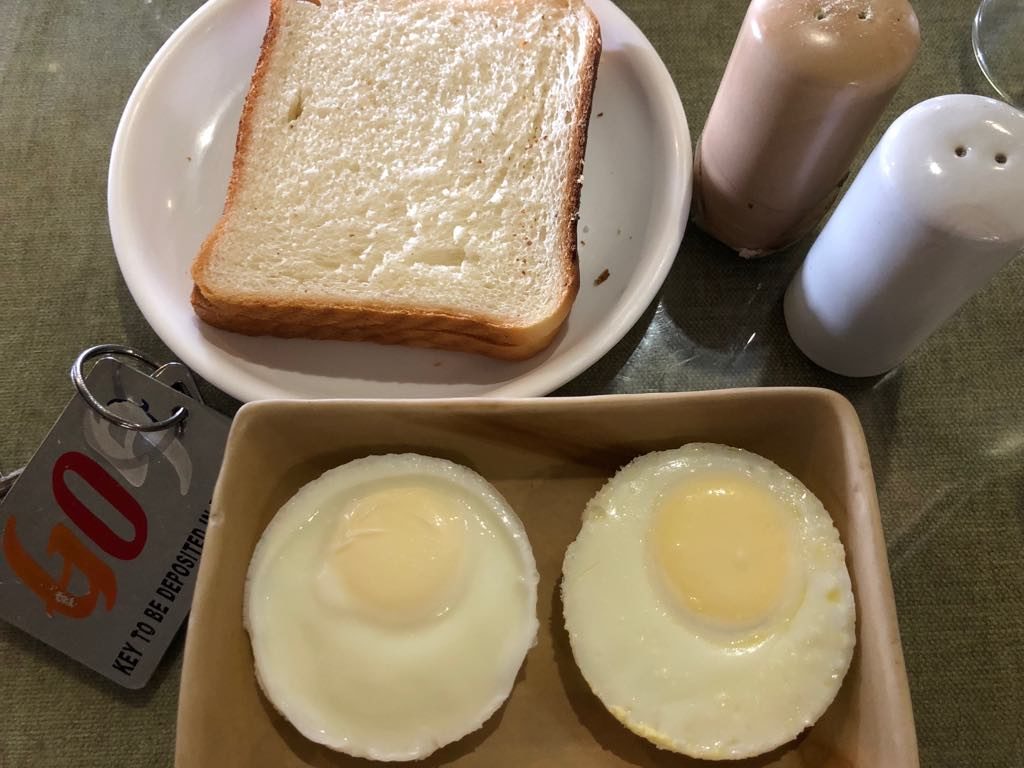
The Writing and the Story (Some Advice too!)
Then back to the hotel room and more writing. No distractions today. Wrote up quite breezily until lunchtime. Put in around 5 chapters, which is a biggie.
Our poor Devika is now in the thick of things. She has come to this house with a completely blank slate, for her memory is lost, and she is falling for the young doctor who has brought her into the house, Dr. Sumit Vishwakarma. Their romance is brewing, but at the same time, weird things are also happening in the house. Balancing the story between a blooming romance and nightly haunting is turning out to be a great narrative structure. Also, since the story is told from different POVs (we get to hear from both Devika and Sumit and even other characters when needed), there’s a lot of variety.
Pro-tip: Multiple POVs add variety to the writing and makes the reader sample different characters. Advisable if your story spans a large spectrum.
The Rest of the Day
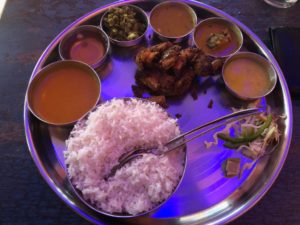 Lunch was a brilliant prawns thali at a place called Flying Fish off Mapusa market. Wonderful fare at a dirt-cheap rate. Do check out the pic, and if you are here the next time, go to Flying Fish with all my recommendation.
Lunch was a brilliant prawns thali at a place called Flying Fish off Mapusa market. Wonderful fare at a dirt-cheap rate. Do check out the pic, and if you are here the next time, go to Flying Fish with all my recommendation.
Returned to the hotel room and back to writing. Only took breaks for a cup of tea in the evening (called it to my hotel room) and for dinner had some Goan specialties that I got from the market. One piece of batk was enough to fill an entire dinner for me.
More writing till late night brought my word count to 32000, which makes this day my most productive day so far. And also explains why there are not many pics!
18th of July, 2018
I was quite looking forward to this day because there was a plan to meet with fellow-authors in Goa. Authors have this thing; when they go to another city, they scope out other authors there and plan a meet. It’s almost an unspoken rule. And if those other authors are also friends, then it’s an icing on the cake.
The Mini Authors’ Meet
Four of us met at a lovely eatery called Cluck Tales in Panjim. It’s right across the Panjim Market and pretty famous. We managed to get a cozy table on the mezzanine floor and really had a go with our chats and plans for future events.
In the picture are (from left to right), Charmaine DeSouza Fernandes who is writing her first book and is a winner of the Readify Author Hunt and also quite a popular animal activist, myself, Uttam Kumar who is a social worker and has also written a book titled First Job and 10 Mistakes, and Rohan Govenkar who is an author of two books titled 1000 Kilograms of Goa and Oh My Goddess and a very popular Goan personality.
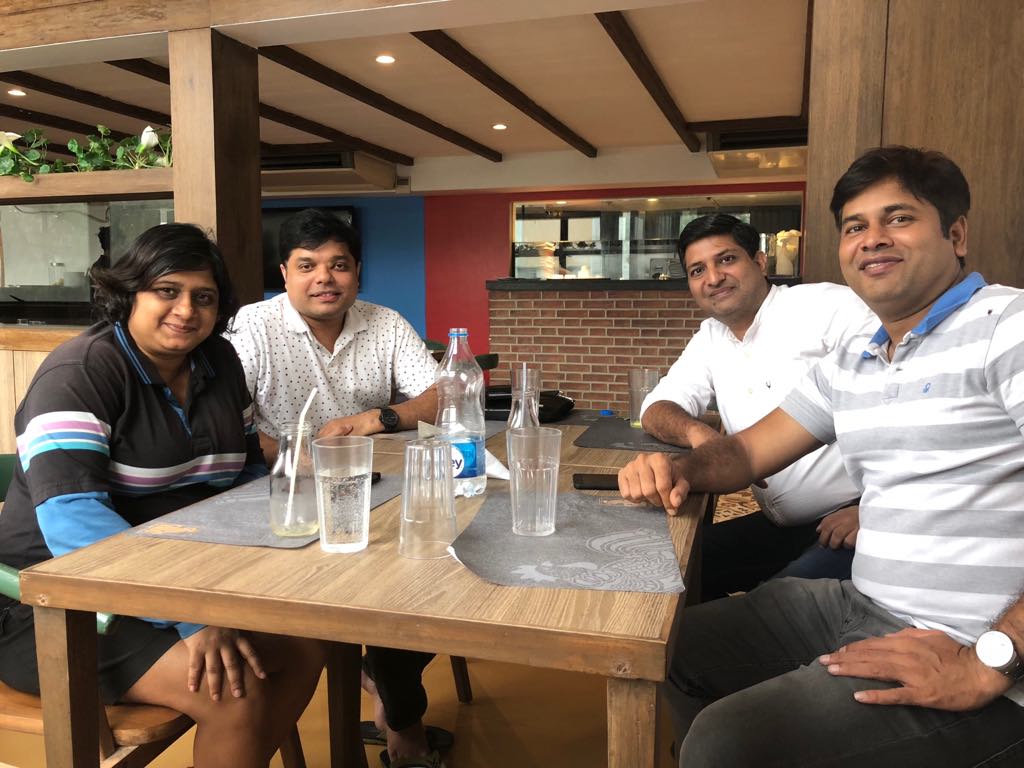
We talked about Rohan’s recent trip to Russia for the FIFA matches, Charmaine’s and Rohan’s visits to some of the spookiest places in Goa, and Uttam Kumar’s observations on society at large, which were quite the treat. We also spoke about having a bigger event in Goa to bring the local literary community together, on which details will be put up soon. Now that’s what I call an enriching meeting. Likeminded people getting together and trying to give something back. Rohan also gifted us copies of his books!
And since I always mention food, mine was a wiener schnitzel with beer! (sorry, didn’t get pics of the food). A shout-out to Vasco, the owner of Cluck Tales, for the good food.
Roaming Around in Panjim
Panjim is called the most walkable city in India. No, I don’t have any citation for this, but I have heard it said. And, of course, I have the experience. The city is quite clean and uncluttered and there’s no traffic on most routes, and then there’s this cool breeze blowing in that keeps you walking. I walked for about an hour through the various spots.
Here’s my pic of the Panjim Market. Have always loved the Mario Miranda murals on the walls.

Walked around to Our Lady of Immaculate Conception church, the popular church with the white exterior and beautiful steps, spent a few minutes at the Jardim Garcia de Orta, came to Fountainhas, and then got back. My story was calling!
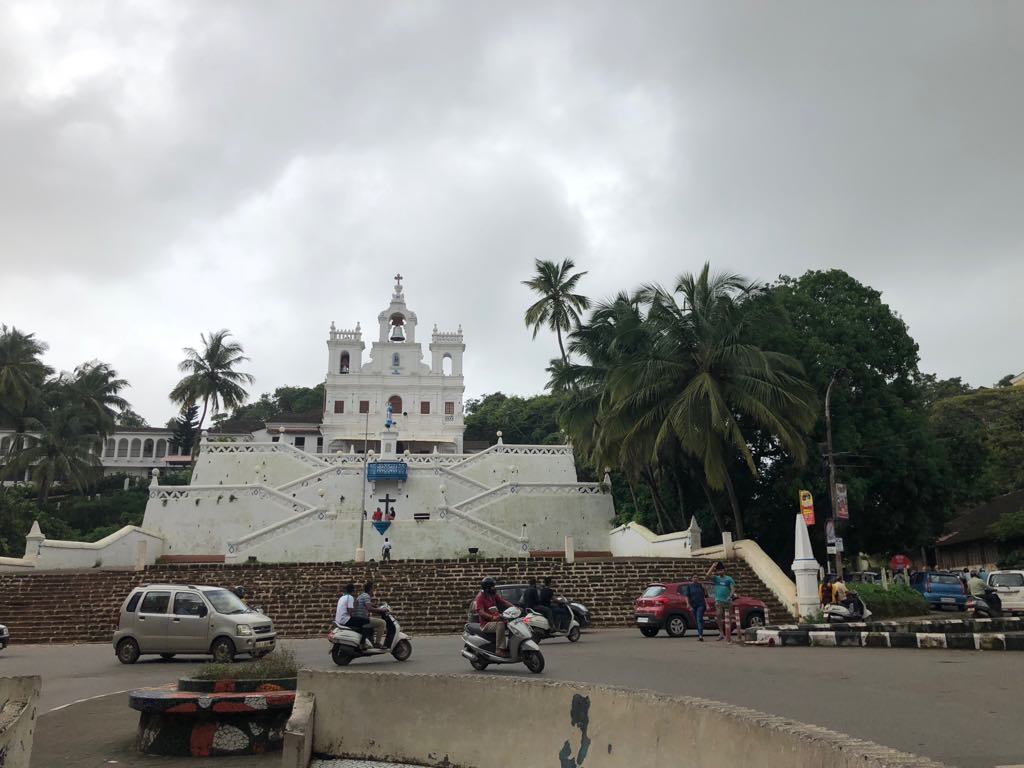
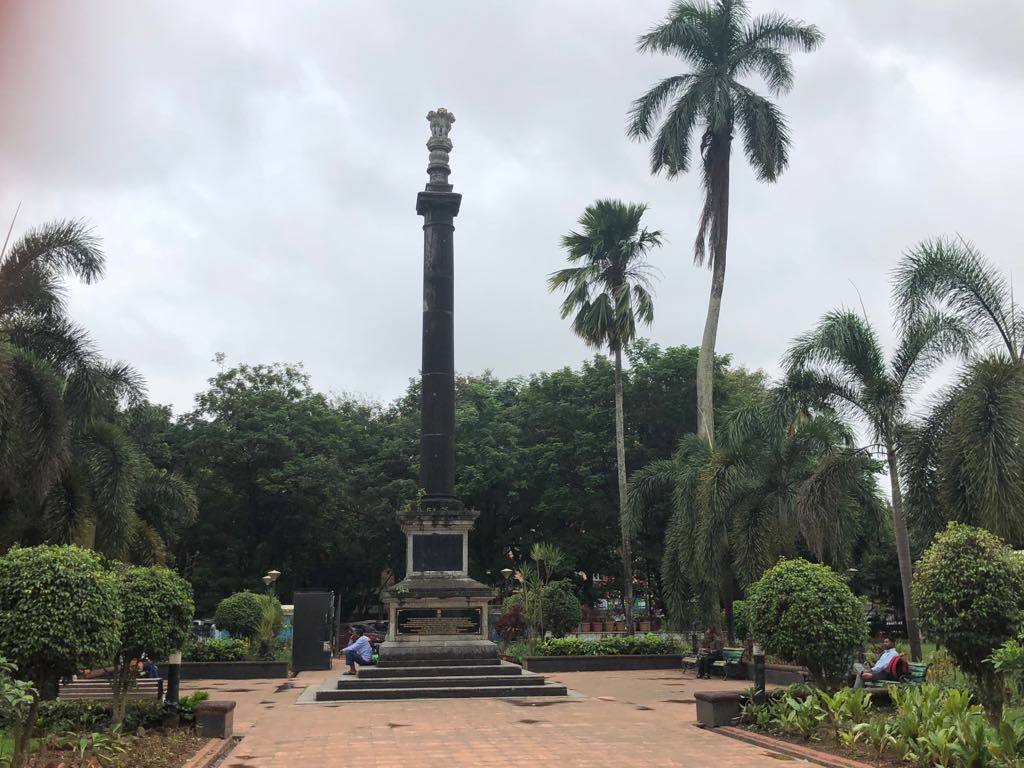
The Writing
Wrote a few scenes without any distraction until evening. I knew this day wasn’t going to be much fruitful writing-wise, and it wasn’t. Something else was coming up! A casino visit! A friend had invited me to one of Goa’s most popular floating casinos, and I saw myself going to Panjim again and was there then till the wee hours of morning trying to test my luck. Don’t ask me how that went!
Progress at the end of day = 35000 words in total.
One more day left technically. How will I finish?

